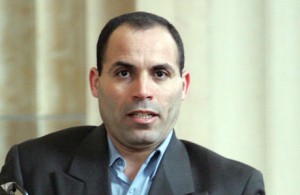Mohamed Harkat deemed terrorist, faces deportation
Postmedia News, December 9, 2010
OTTAWA — Mohamed Harkat has been deemed a terrorist by a Federal Court judge and faces deportation to his native Algeria. Justice Simon Noel ruled that two cabinet ministers made a reasonable decision in February 2008 when they concluded Harkat poses a threat to national security. The federal government has been trying to deport Harkat since December 2002 when he was first arrested on the strength of a national security certificate.
Noel said Harkat lied on the witness stand when he denied any involvement in the terrorist network.
The ruling means Harkat, 42, who has lived in Ottawa since September 1995, is under an automatic deportation order.
A federal immigration officer must now assess whether Harkat faces a significant risk of torture if returned to Algeria, the country from which he fled in 1990 as a political dissident.
Harkat has said that he will be tortured or killed if returned to that country.
The Harkat ruling represents a major victory for the federal government and its security-certificate law, which was designed to rid the country of foreign-born terrorists.
Harkat is the first terrorism suspect to have his security certificate upheld by the Federal Court since the new law was introduced in February 2008.
Two others, Adil Charkaoui and Hassan Almrei, have had their security certificates quashed and are now suing for millions in damages.
Security certificates give federal authorities the power to arrest, imprison and deport foreign-born terror suspects without revealing in public all of the evidence against them.
The process has foundered until now. In 2007, the Supreme Court ordered the government to redraw its security certificate legislation, but since then, intelligence dossiers have not stood up to the new system’s increased level of scrutiny.
Harkat, an Ottawa pizza deliveryman and gas-station attendant, was first arrested on Dec. 10, 2002. He has always denied any connection to terrorism.
In March 2005, Justice Eleanor Dawson found it was reasonable for the government to conclude Harkat was an al-Qaida terrorist. That decision was overturned by the Supreme Court when it ruled the security-certificate process was too secretive.
A second certificate was issued against Harkat in February, 2008.
Noel began hearing evidence in the case later that same year, both in camera and in public. He was presented with a significantly different case from the one heard by Dawson.
Harkat testified that he came to Canada as a refugee in October 1995 after spending five years in Pakistan as an aid worker. He fled Algeria, he said, because of a crackdown on the political party to which he belonged, the Front Islamique du Salut (FIS).
The Canadian Security Intelligence Service (CSIS) contends Harkat developed terrorist ties in Pakistan.
According to CSIS, Harkat worked as a chauffeur and errand boy at a Peshawar guest house run by Saudi-born jihadist Ibn Khattab. The spy agency also alleges Harkat did work for Ahmed Said Khadr, a Canadian member of al-Qaida, while in Pakistan.
In Ottawa, CSIS claims, Harkat helped facilitate the movement of money and people in the bin Laden network.
CSIS presented court with transcripts from 13 telephone conversations, intercepted between September 1996 and September 1998, to demonstrate that Harkat maintained links to Khattab, Khadr and Abu Messab Al Shehre, a Saudi deported from Canada after being stopped at the Ottawa airport with a garrote, a samurai sword and a balaclava.
Harkat’s defence team argued that the evidence could not be relied upon since CSIS destroyed the original tapes. Lawyer Norm Boxall said Harkat was targeted because of the fear that permeated North American after 9/11 and suggested CSIS created the concept of a “sleeper agent” to explain why Harkat lived peacefully in Canada for seven years before his arrest.




